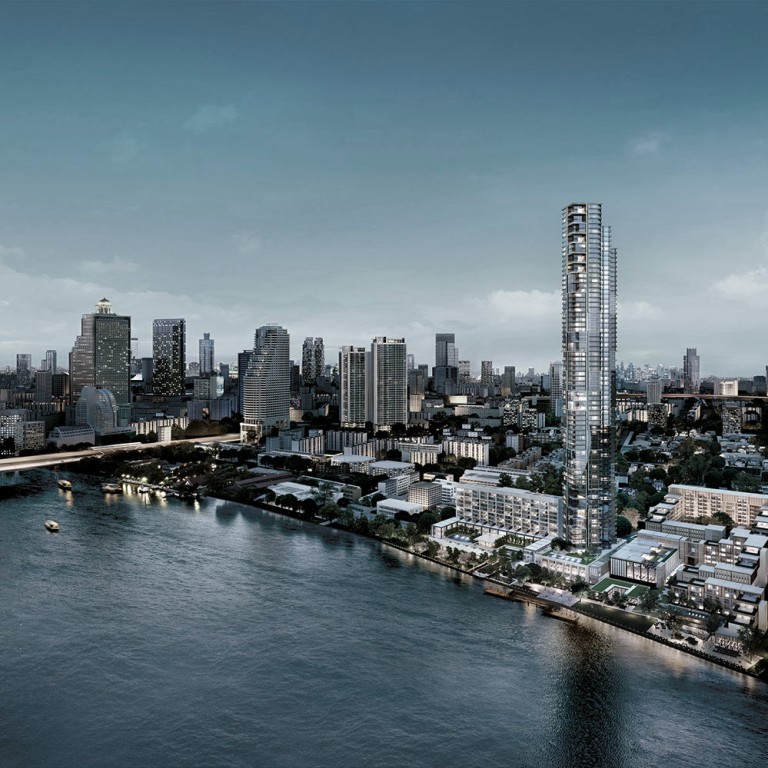
Bangkok bomb won't deter wealthy Chinese buyers with an affinity for Thailand, says US$1bn luxury property developer
A week after Bangkok’s deadliest terror attack in living memory might not seem the best of times to be marketing a US$1 billion ultra-luxury residential and hotel project on the bank of the city’s Chao Phraya River, but Ben Taechaubol is in defiant mood.
A week after Bangkok’s deadliest terror attack in living memory might not seem the best of times to be marketing a US$1 billion ultra-luxury residential and hotel project on the bank of the city’s Chao Phraya River, but Ben Taechaubol is in defiant mood.
“As a nation, I don’t think we should let such incidences drive things. If we all started to think this way, then they’ve won,” the chief executive officer of Country Group Development PCL said yesterday in Hong Kong, where the company is planning a second sales campaign for its Chao Phraya Estate project.
Twenty people died and more than 100 were injured in the August 17 bomb blast that tore through the crowded Erawan Shrine. Police have still not identified the perpetrators of the attack, which the government said aimed to cripple the tourism-driven economy.
Tourism accounted for all of Thailand’s economic growth in the second quarter. Chinese visitors, who made up 85 per cent of the increase in arrivals this year, tend to react “highly negatively” to such events, UBS AG’s Kelvin Tay and analyst Valerie Chan wrote in an August 25 report.

Seven of the dead were from mainland China or Hong Kong. In the five days after the bombing, travel bookings to Thailand slumped 65 per cent from a year earlier, the agency said.
The report raised the possibility of more attacks “given that Bangkok is an open city with very liberal visa policies”.
READ MORE: Youngest Hong Kong victim of Bangkok blast Jasmine Chu on the road to recovery after flying home
Taechaubol disagreed, saying he expected no long-term impact on Thailand’s allure to foreign visitors or on sales for Chao Phraya Estate. The project, which launched in January, will feature a 73-storey Four Seasons Private Residences tower, a 300-plus room Four Seasons Hotel and 100-room six-star Capella Hotel.
In a nod to the growing importance of China to the Thai economy, it is the first Bangkok luxury project financed by a major Chinese bank, and with construction awarded to a Chinese property company – Beijing Construction Development.
“It’s an extremely resilient market, to say the least,” Taechaubol said. “The people who’ve bought us, they love Thailand, they’ve been there many times. They buy because they have an affinity with Thailand and that’s not going to go away.”

Nor do plunging regional stock markets leave him fazed. Equity benchmarks in Thailand, Hong Kong, Singapore and China – all key sources of potential buyers for the project – have slumped more than 15 per cent in the past three months.
“For our clients, affordability is not even an issue,” he said.
After Thais, who make up 45 per cent of buyers to date, Hong Kong is the second biggest source of purchasers. The first sales campaign earlier this year in Hong Kong set records for a Thai development, pulling in over US$20 million in one weekend.

